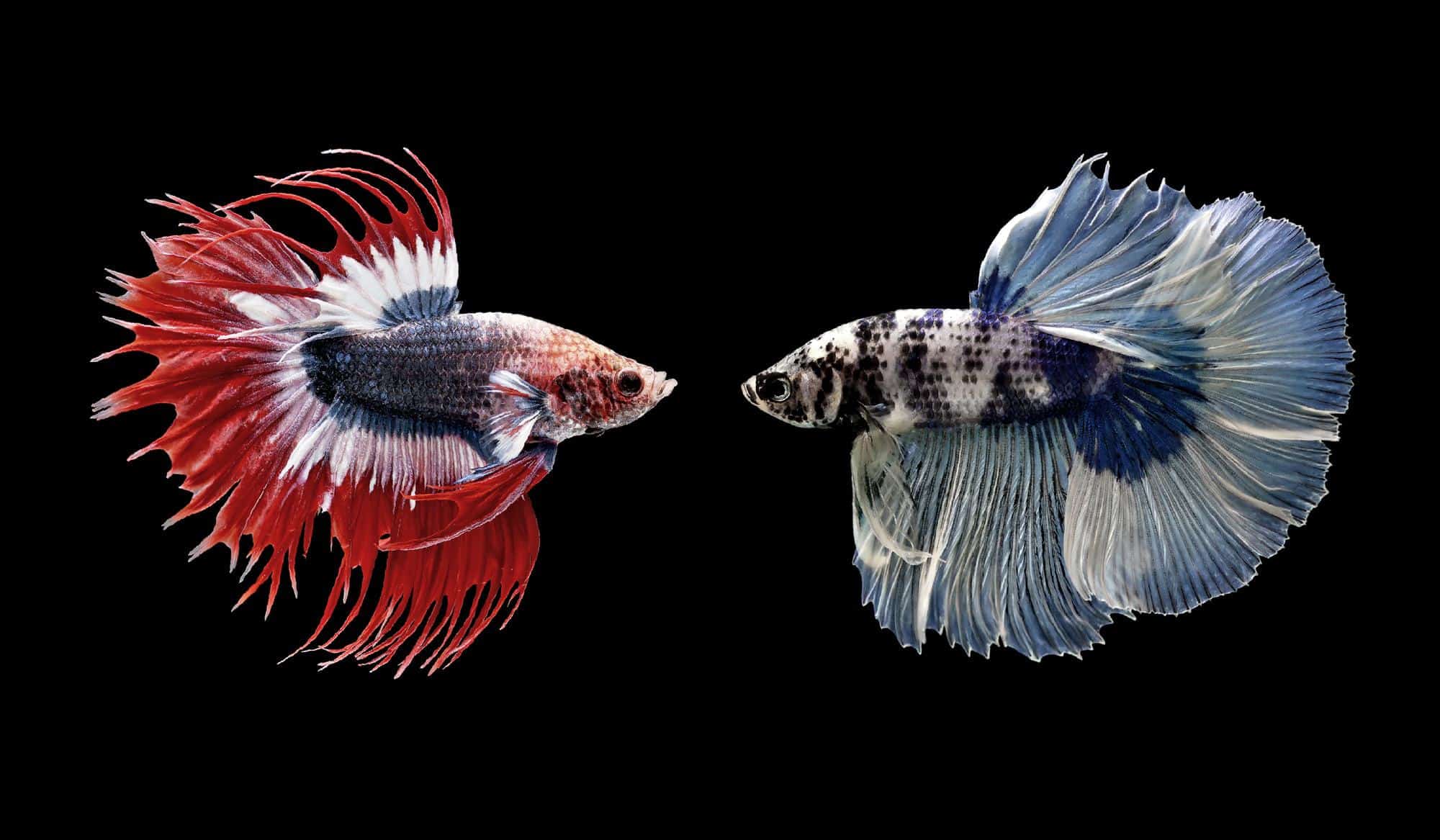Betta fish, also known as Siamese fighting fish, are popular aquarium pets that come in a variety of vibrant colors. However, what many people may not know is that these fish can actually change colors over time. But why do they do this?
There are several reasons why Betta fish change colors, including their genetics, environment, and mood. Understanding these factors can not only help you better care for your Betta fish, but also appreciate their stunning and unique characteristics. So, let’s dive deeper into the fascinating world of Betta fish color changes.
Betta fish change their colors due to different reasons such as stress, age, mood, and breeding. Stressful conditions can cause them to change their color to a duller shade or even pale. As they age, their colors may fade away, and their fins and scales start to deteriorate. When they are in breeding mode, their colors become brighter to attract a mate. Additionally, betta fish have chromatophores, which are cells responsible for changing their color depending on their mood and environment.

Why Do Betta Fish Change Colors?
Betta fish are known for their bright and vibrant colors, making them a popular choice for aquarium enthusiasts. However, have you ever wondered why betta fish change colors? There are several reasons why betta fish change colors, including genetics, mood, and environment.
Genetics
Betta fish come in a wide range of colors and patterns, from vibrant reds to iridescent blues. These colors are determined by the fish’s genetics, which dictate the amount and type of pigment in their skin. This means that betta fish can have a wide range of colors, even within the same species.
In addition, some betta fish are bred specifically to exhibit certain colors or patterns. Breeders carefully select and breed betta fish that possess desirable traits, such as bright colors or unique patterns, to create new strains of betta fish.
Mood
Betta fish can also change colors in response to their mood or environment. For example, a happy and healthy betta fish may exhibit brighter and more vibrant colors, while a stressed or sick fish may appear dull and faded.
Male betta fish, in particular, are known for their vibrant colors during courtship displays. When a male betta fish is trying to attract a mate, he will flare his fins and display his brightest colors to show off his strength and vitality.
Environment
The environment in which a betta fish lives can also affect its coloration. Betta fish are known to change colors in response to changes in water temperature, pH levels, and lighting conditions.
For example, betta fish may appear more vibrant in warmer water, while cooler water may cause them to appear more subdued. Similarly, changes in lighting can affect a betta fish’s coloration, with brighter light causing more intense colors and darker light causing more muted colors.
Betta Fish Color Chart
If you’re interested in owning a betta fish, you may wonder what colors and patterns are available. Here is a betta fish color chart to help you choose the perfect fish for your aquarium:
| Color | Description |
|---|---|
| Red | A bright and vibrant red color |
| Blue | An iridescent blue color |
| Green | A green color with hints of blue or yellow |
| Purple | A deep purple color |
| Yellow | A bright and sunny yellow color |
| White | A pure white color |
| Black | A dark black color |
The Benefits of Owning a Betta Fish
In addition to their stunning colors, betta fish offer several benefits to their owners. Betta fish are low-maintenance pets that require minimal space and can thrive in small aquariums or bowls. They are also relatively inexpensive to care for, making them an affordable pet option.
Betta fish are also known for their unique personalities. While they may not be as interactive as dogs or cats, betta fish can recognize their owners and may even interact with them in their own way.
Betta Fish vs Other Fish
If you’re considering adding a betta fish to your aquarium, you may wonder how they compare to other types of fish. Here are some key differences between betta fish and other popular aquarium fish:
- Betta fish are solitary and should not be kept with other bettas, while many other fish thrive in groups.
- Betta fish require warmer water temperatures than many other types of fish.
- Betta fish are relatively low-maintenance and do not require extensive filtration or equipment, unlike some other types of fish.
In conclusion, betta fish change colors for a variety of reasons, including genetics, mood, and environment. Whether you’re interested in owning a betta fish for their stunning colors or their unique personalities, these fish are sure to make a beautiful and engaging addition to your aquarium.
Frequently Asked Questions
Betta fish are popular aquarium pets, known for their bright and vibrant colors. One of the fascinating things about betta fish is that they can change color, which can be an indicator of their health and mood. In this article, we answer some frequently asked questions about why betta fish change colors.
What causes betta fish to change colors?
There are several reasons why betta fish change colors. One of the most common reasons is mood or stress. Betta fish have a unique ability to change their color based on their mood, which is known as “chromatophores.” When a betta fish is happy and healthy, they will display bright and vibrant colors. However, if they are stressed or unhappy, they may become pale or dull in color. Another reason for color change is genetics. Some betta fish are bred to display certain colors, and their coloration can change as they age.
Is color change normal for betta fish?
Yes, color change is normal for betta fish, and it can be an indicator of their health and mood. As mentioned earlier, betta fish have the ability to change their color based on their mood, which is a natural and normal behavior. However, if you notice sudden or drastic color changes, it may be a sign of illness or stress, and you should consult a veterinarian.
How can I help my betta fish maintain their color?
To help your betta fish maintain their bright and vibrant colors, you should provide them with a healthy and stress-free environment. This includes providing them with a proper diet, clean water, and a comfortable living space. You should also avoid putting them in a tank with aggressive fish, as this can cause stress and color changes. Additionally, you can add live plants and decorations to their tank, which can provide stimulation and reduce stress.
Can betta fish change colors as they age?
Yes, betta fish can change colors as they age. This is because their genetics and natural pigmentation can change over time. Additionally, as betta fish age, they may become more prone to stress and illness, which can cause color changes. It’s important to monitor your betta fish’s coloration and behavior regularly, and consult a veterinarian if you notice any sudden or drastic changes.
What should I do if my betta fish changes color suddenly?
If your betta fish changes color suddenly, it may be a sign of illness or stress, and you should consult a veterinarian. Some common signs of illness or stress in betta fish include lethargy, loss of appetite, and unusual behavior. It’s important to act quickly if you notice any of these symptoms, as they can be indicators of serious health issues. Additionally, you should ensure that your betta fish has a healthy and stress-free environment, with clean water, proper nutrition, and comfortable living conditions.

Why betta fish change color? 💛💚💙💜 Marble Bettas
In conclusion, the color changes in Betta fish are a fascinating phenomenon and an important aspect of their behavior. These changes can occur for several reasons, including stress, illness, breeding, and genetics. The ability to change color allows Betta fish to communicate with one another, attract mates, and defend their territory.
Understanding the reasons behind Betta fish color changes can help owners identify and address any underlying health issues. It’s important to provide a stress-free environment for these fish, with proper water quality, temperature, and nutrition. Additionally, Betta fish should be housed in a tank that is adequately sized and equipped with hiding places and plants to reduce stress levels.
Overall, Betta fish are captivating creatures with unique personalities and behaviors. By providing them with a healthy environment and monitoring their color changes, owners can ensure that their Betta fish thrive and remain healthy for years to come.
